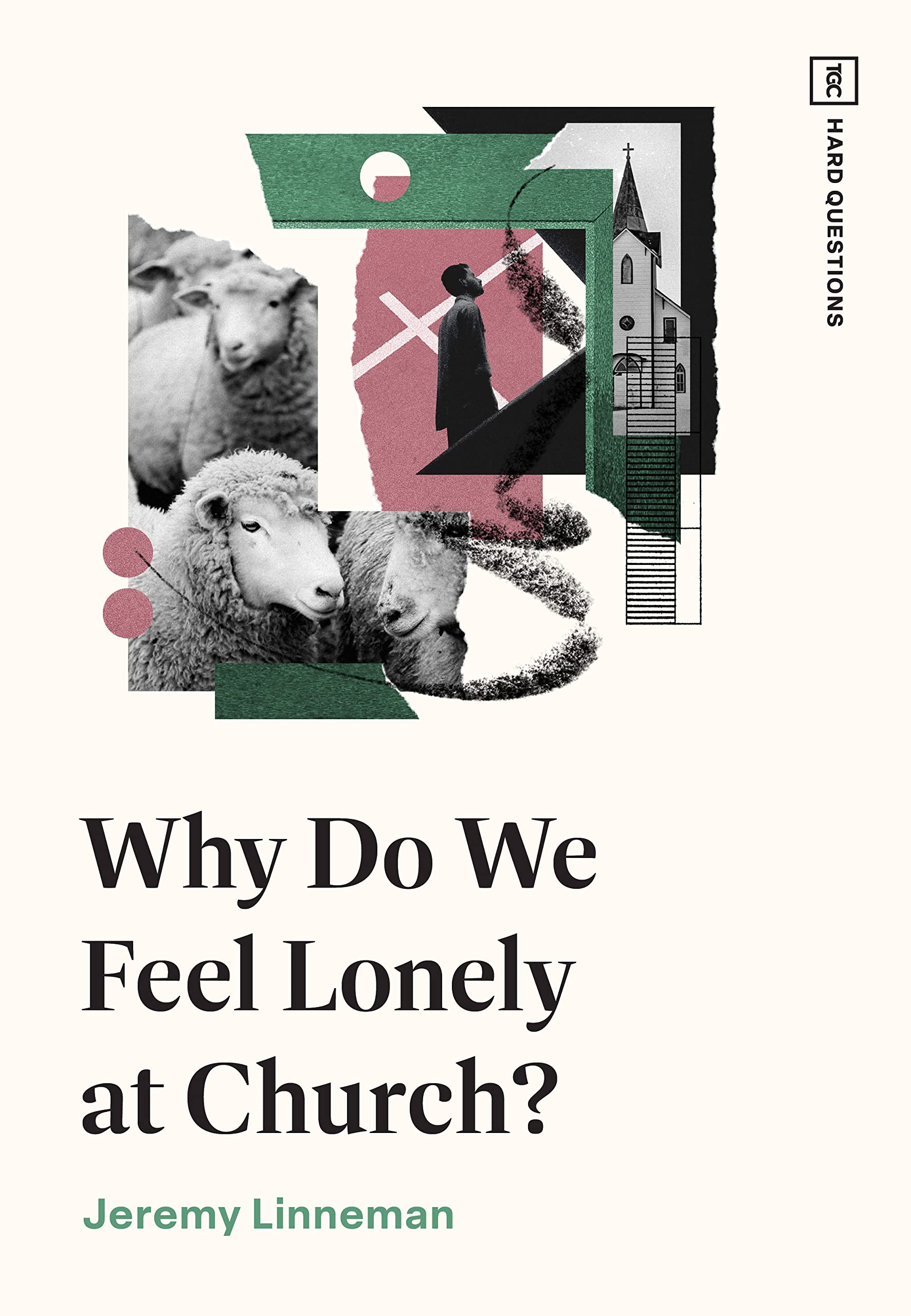



Why Do We Feel Lonely at Church? (TGC Hard Questions)
M**W
A Primer on battling loneliness within the Church
This should be required reading for church members and in every church member's "Welcome Packet". As Jeremy so eloquently outlines, we as a society are becoming "radically individualistic". In his book, infused with scripture, Jeremy highlights the problem and offers steps that each member (new and old) and Pastoral staff can take to confront this ever growing problem within the Church. If we could only "embrace real, meaningful, face-to-face relationships with imperfect people", oh how we might better reflect Christ. Highly recommend.
M**M
Insightful
This book does a great job at getting you to really think about how the issue of loneliness in the church is rooted in our intensely individualistic culture. We are so fiercely independent and individualistic that we have begun to really struggle to let down our walls and barriers and truly let people into our lives. While the book does a great job at identifying the problem I wish there was a little bit more content on how how to fix the problem.
A**R
An answer to a question most ignore
This book couldn't have come to me at a better time. In fact, I came across it while pondering that exact question. For that reason, I was happy to have the opportunity to review it.I come from a Catholic background, yet I still find myself agreeing with the points made in this book. I was always taught that church is your place of duty where you worship God and that's it. It was never a place to make friends have a decent time. Even then, I still recall a time when everyone seemed to at least know each other and even the bishops knew who everyone was. Now, we don't even have priests that stay in the parish for more than a year. Honestly, the atomization is what drove me away from the church. What good is insincere worship, after all? Could the church institution alone be the problem if people don't even want to shake hands during the sign of peace and avert gazes so they don't have to smile and wave at someone in another pew?This book reminded me that I am not alone in how I feel and that there are solutions if only others would acknowledge this problem.I don't want to reveal all of this book and its points because it is VERY short (47 pages, not including notes and such), but I do think it is worth a read regardless of your inclinations because anyone that talks about the loneliness epidemic is worth listening to. The author's perspective as a church leader grants insight that most otherwise wouldn't have. The results of studies that are shared in the book are also startling.I highly recommend giving this a read. It won't take up too much of your time and it is dense with useful information.
N**1
Decent review of loneliness in church and society, but lacking in how to counter it.
I did not expect much when I began reading this booklet. I am someone who became very lonely in church before I eventually stopped going years ago, but I was skeptical whether the insight from the book would be relevant to my experience.I was mistaken. The author, a church pastor, did address how church members themselves are sometimes part of the problem in making others feel lonely at church. They discussed how social media was integral to changing how we communicate and maintain relationships, and not in a good way. They brought up how many in society have grown less willing to work with those who think differently than they do as a result of social media, increasing the challenges of connecting with those around us. These are all points that are very relevant to my experience.Unfortunately, for all the time and ink dedicated to explaining how we got to this point, there’s very little said on how to change things, whether in Church or society. Some practical advice is given for ending programs that are more trouble than they’re worth, such as resource-heavy social events that fail to draw in new church members, but less is said on what sort of programs might actually encourage church and community members to be more accepting of each other. The author simply encourages others to focus on God’s love as what binds us together to address loneliness in churches and spend more time doing things with fellow church members. That’s nice and all, but I’m not sure how useful that is. Should a church member go around and say, “Hey, we’ve got God’s love in common! Let’s go bowling together!” anytime they feel distance forming between members in the church? I mean, it might help. Heck, it might do a lot, but I don’t think it would have fixed the problems that drove me away from church.Separate of the content, this booklet could have used another round of editing. The sentences are sloppy and confusing at points, and the word choice is, at the very least, strange to me. There are some lines early on about extreme “individualism” being a problem, and yet reading further indicates that what he meant was likely self-isolation and rejecting others who are different from oneself. Furthermore, despite having subsections identified while reading, the subsections are neither named nor numbered in the table of contents, making it hard to jump back to a particular section for rereading.
Trustpilot
2 months ago
1 month ago